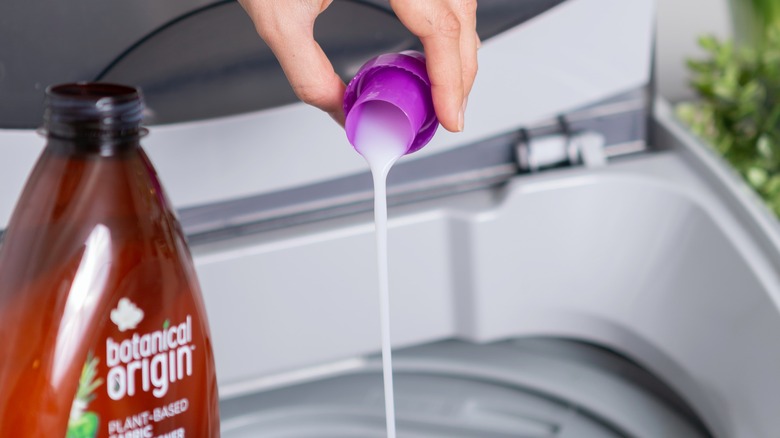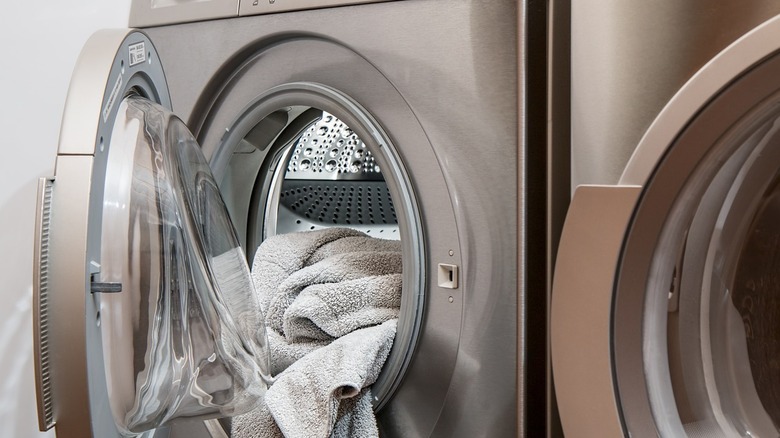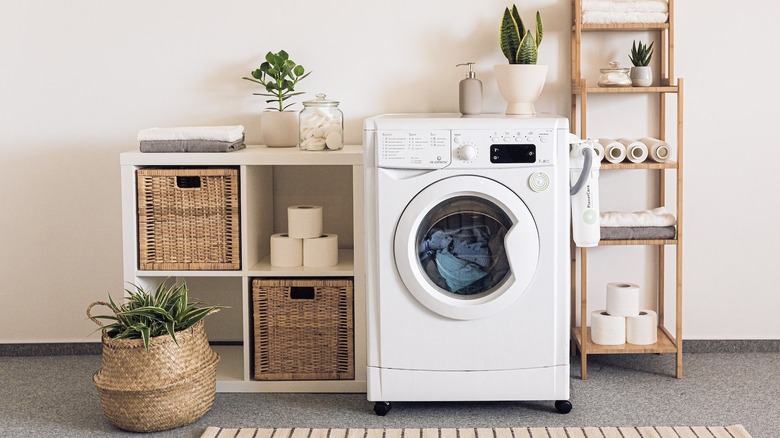What Is HE Laundry Detergent And When Should You Use It?
More suds equals cleaner clothes, right? Wrong. This can actually mean the opposite if you have a high-efficiency washing machine. This is because these models use less water, meaning they're less likely to rinse off the deluge of suds that regular detergent is known for. That's why many brands offer a low-sud alternative to traditional detergent. HE (high-efficiency) laundry detergent is specifically formulated for energy-efficient washing machines that use minimal water. This includes top-load hybrid models that do the work of adjusting water levels based on your load size.
HE detergent lifts dirt, food, and stains from clothes as traditional detergent does, but without producing excessive suds. Of the washing machines presented in Consumer Reports' Green Choice ratings, the most efficient machines only required eight gallons of water for an eight-pound test load. However, less efficient models can use three or more times this amount of water. Using the wrong detergent in a modern washer can cause costly leaks and mold, so choosing a product that's tailor-made for the application is a no-brainer.
Using HE laundry detergent
You've probably noticed the lowercase "he" symbol printed on the bottles of laundry products while shopping. Since high-efficiency washers use far less water than their traditional counterparts, HE detergent is designed with two functions in mind. First, it removes dirt and stains from clothing. Secondly, since the water volume is lower, it must ensure the dirt and residue in the water can't make its way back to your laundry. So while traditional detergent works similarly, HE formulas have to work far harder given the dirt-to-water ratio is entirely different.
HE detergent also differs from traditional offerings in other key ways. For one, you'll use far less of it per load compared to a traditional detergent, so be sure to read the directions on the bottle. Additionally, these formulas are typically made to be used with cold water, helping minimize your laundry routine's environmental impact. Running cold cycles can lead to substantial savings since a vast majority of a washing machine's energy usage is spent heating water during a hot cycle. What's more, cold water is generally better for washing because it preserves the color and shape of your clothes.
Knowing your machine
Innovation in laundry care has come a long way since people had to hand-crank their washing machines to get their clothes clean (this process used very little water, it was just a pain in the butt to do). As the years have gone by, the invention of fully-automated top loaders put an end to this. Now, there are many washing machine models available on the market. While it's safe to use HE detergent in modern high-efficiency machines, you can also use this detergent with older, low-efficiency models — if you don't mind using a little extra per load. That said, always check your machine's instruction manual before deciding which detergent is best for you.
Unfortunately, the swap doesn't work the other way around. Imagine going downstairs to wash your clothes, and a few moments later, you hear the loudest noise you've ever heard come from your washer. You rush back down and find the basement floor is soaked. What's worse is that your clothes are soaking wet, too. If you've done this, don't feel bad. You've probably mistakenly used traditional laundry detergent in a high-efficiency machine that doesn't contain the water volume to handle a massive amount of suds. If this happens to you, cancel the cycle and rinse your clothes. Hopefully, you can still get the last bit of liquid out of that forgotten bottle of HE detergent to finish the job.


